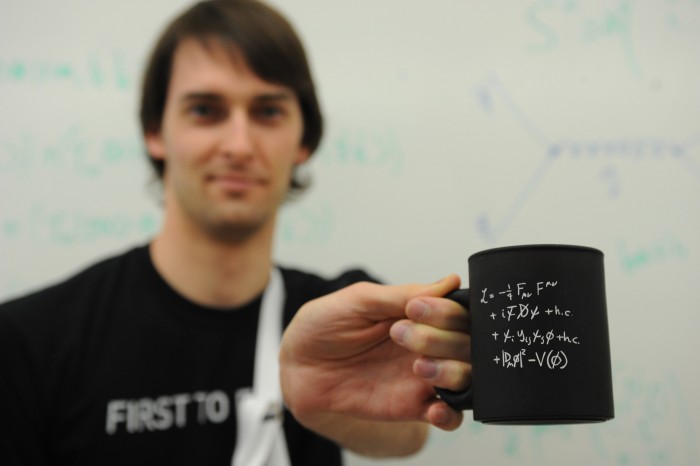Why Physics?
In high school, I was having a hard time figuring out which branch of science I wanted to go down: biology or physics? Biology would be cool, particularly biotechnology and genetics, because I could learn about why people are the way they are at the most basic level. Physics would be cool, too, because I could learn how the world works all around us. So my plan was to take both physics and biotechnology my senior year of high school to figure out which one I liked better. But due to some scheduling conflicts, I ended up not being able to take both. I chose to take physics, and without realizing it at the time, I had determined my future career path.
Four years later, I’m nearly done with my undergraduate degree in physics and astrophysics, and in that time I have learned there is a lot more to do in the physics world than I ever could have imagined. I started with astrophysics my freshman year because I have always loved learning about stars — how they form, their evolution, how we are able to deduce properties about them just by observing them from Earth. Florida Tech is a great place to learn about these things. What I didn’t expect to find, however, was how much I loved physics here on Earth, as well!
Now I face a similar problem I faced in high school: which branch of physics do I decide to follow? To show you my dilemma, here are some article titles written about recent physics research, all of which I think sound interesting:
1) “Laser identifies explosive powders 400 meters away”— ScienceNews — Light shining on a metallic surface interacts with the molecules and may help detect explosive substances.
2) “Quark quartet fuels quantum feud”— Quanta Magazine — Evidence of an unexpected particle found, one whose configuration was believed to be impossible.
3) “Magnets get flipped by light”— ScienceNews — Lasers may be able to change the magnetism of a material, opening new possibilities for data storage in computers.
4) “Nanoparticles open a new window to the brain”— PhysicsWorld — Structure of blood vessels have been imaged in mice and could lead to help with strokes, dementia and brain tumors.
5) “There are no black holes”—After Stephen Hawking’s shocking claim, scientists are re-evaluating the event horizon of a black hole, which may not lead to a singularity after all.
These only represent a miniscule sample of the research opportunities out there in the world of physics and astrophysics. We actually don’t understand as much about how the world works as I thought back in high school, and the more classes I take, the more I see just how little we really know.
So — why physics?
There’s so much going on around us we don’t understand, and it makes the world a very exciting place. A new discovery tomorrow could change our entire perspective, and I would love to be a part of it. Whether it be in astronomy, nuclear, bio-, particle, quantum or any other area of research, I can’t help but be addicted to physics and space.





